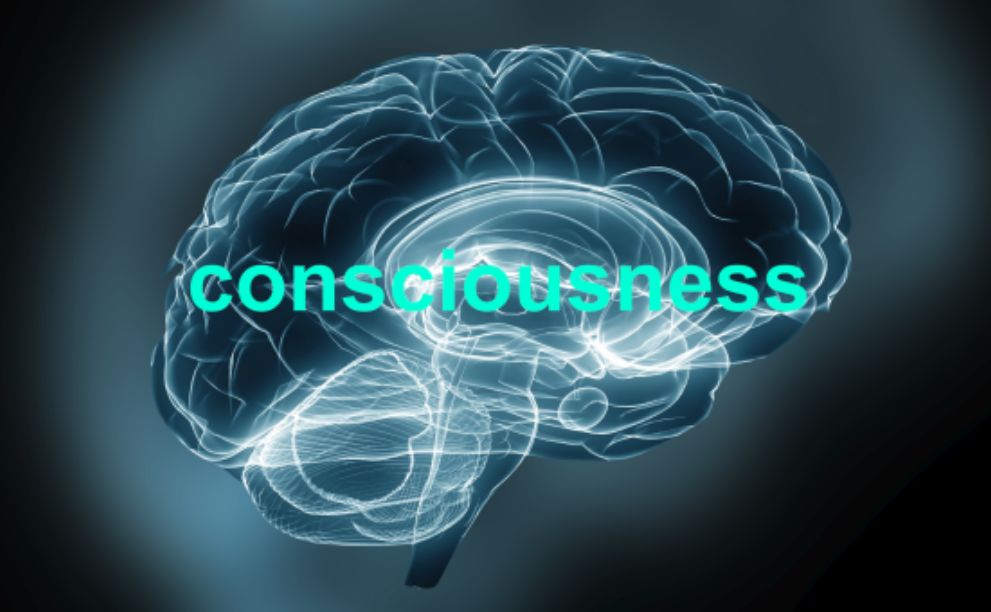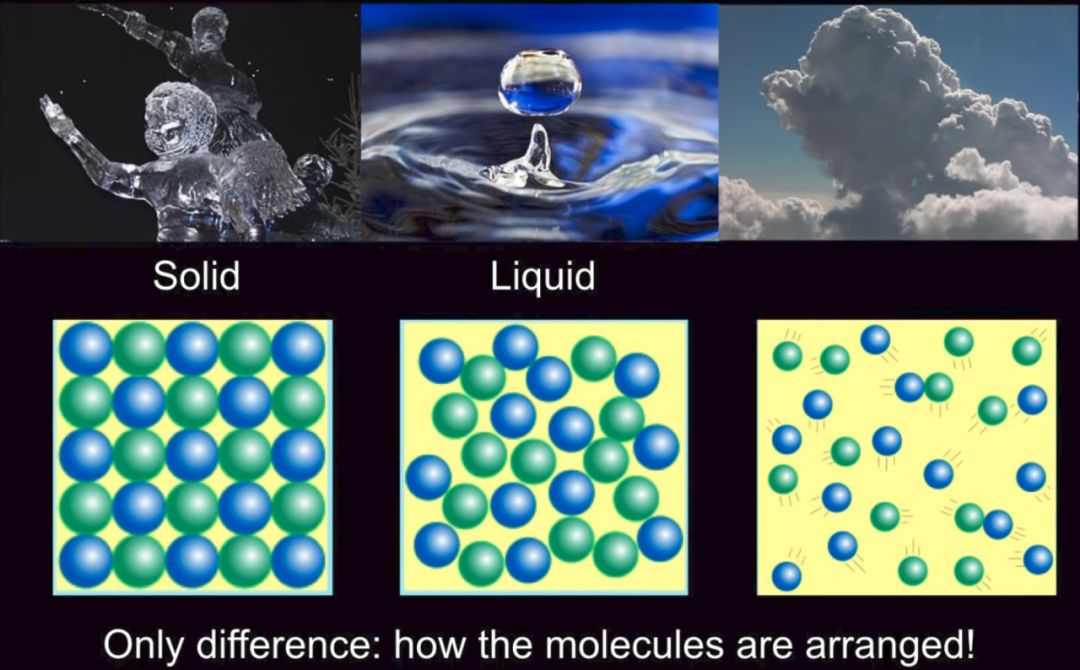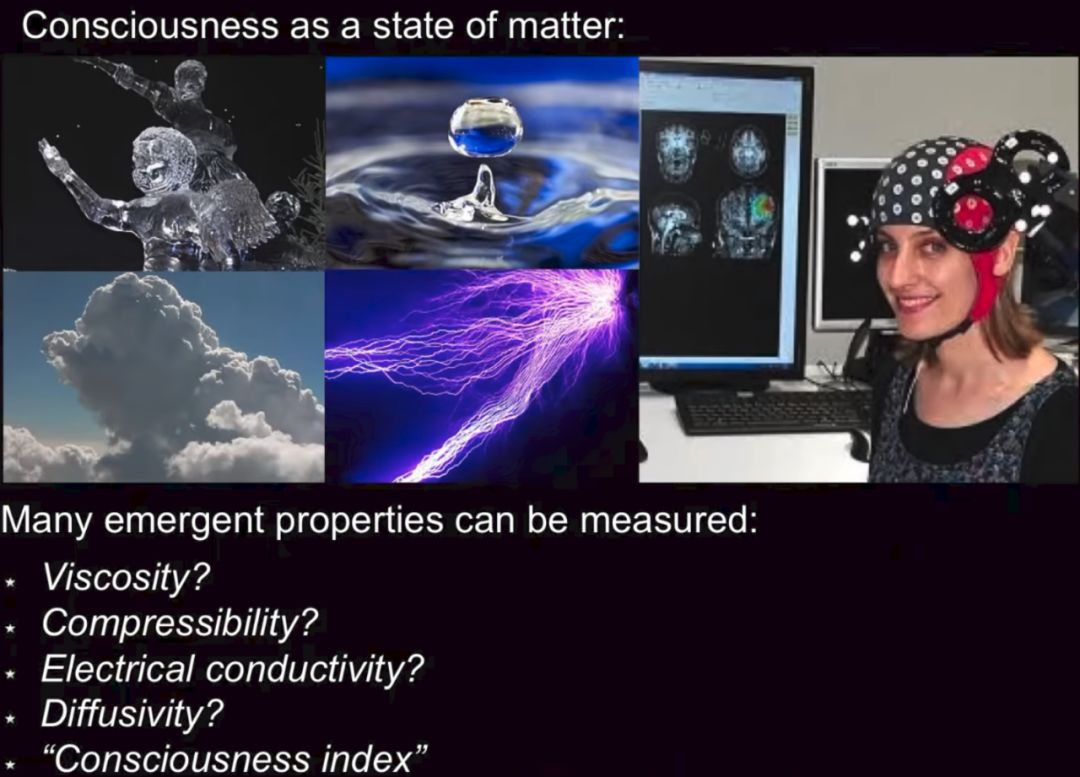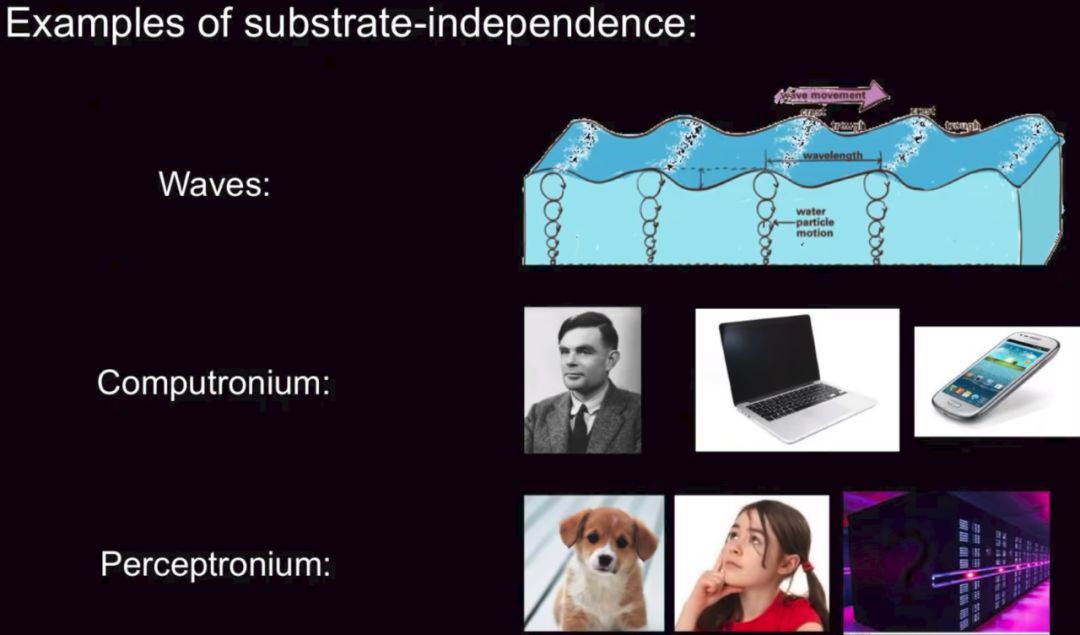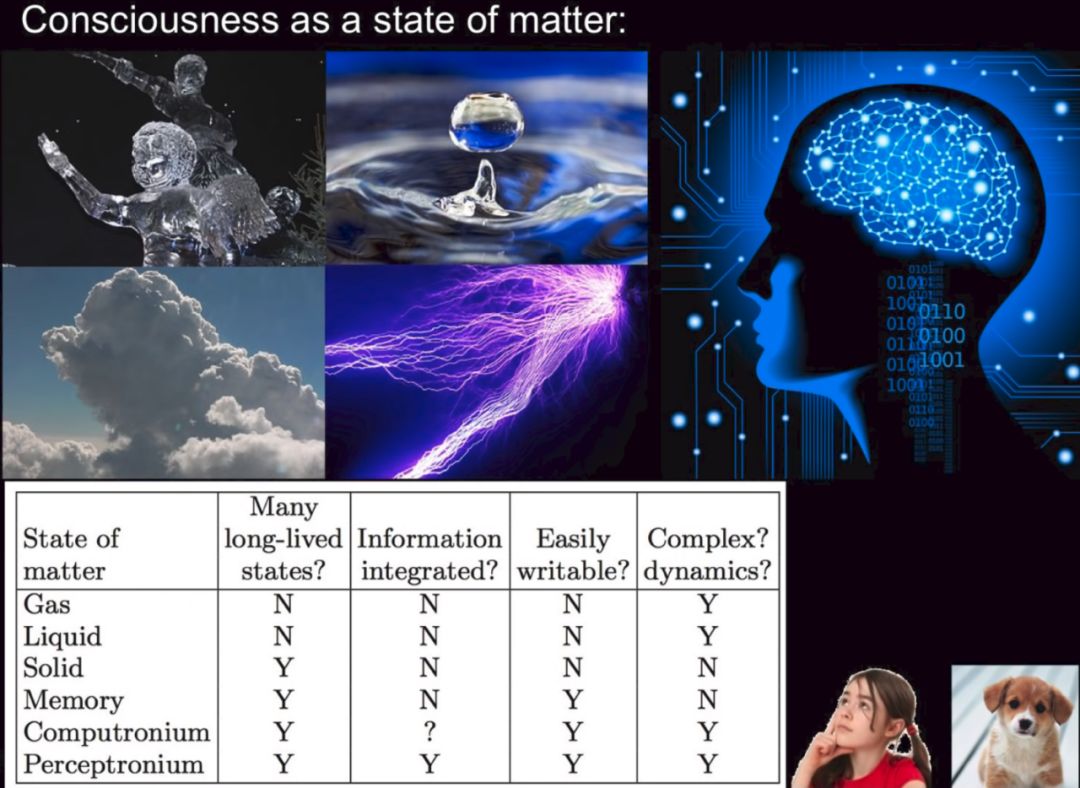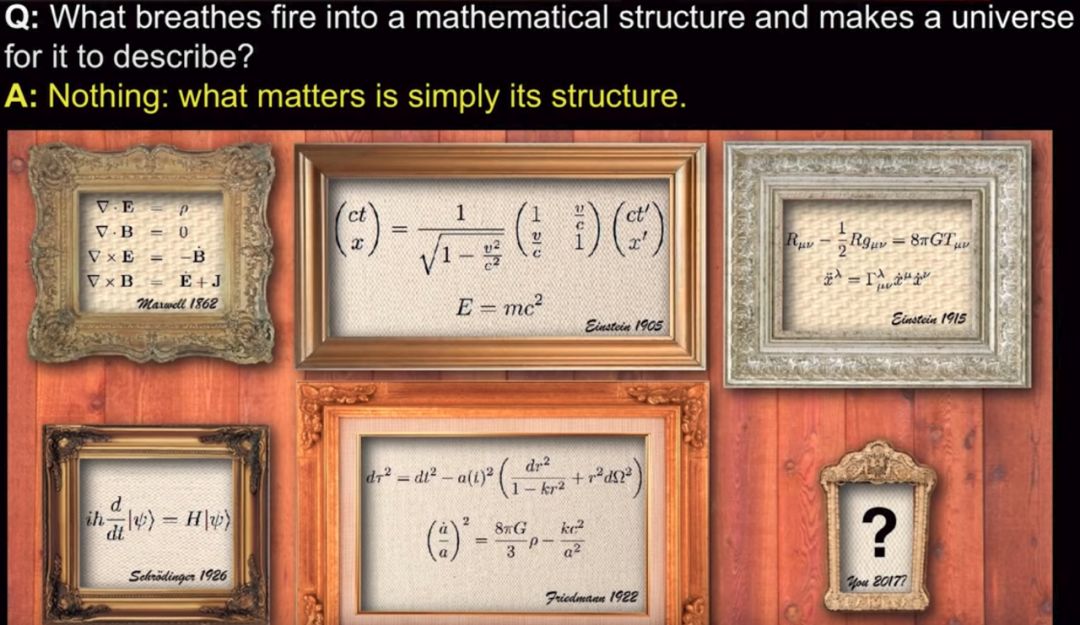意识是一种数学模式
Consciousness is a mathematical pattern
by Max Tegmark at TEDxCambridge
1. Consiousness is subjective experience
Consciousness, we've all wondered about the mystery of consciousness. But there are really two separate mysteries, as the famous philosopher David Chalmers has emphasized.
First, there is the mystery of how our brain processes information, which David calls, "the easy problems of consciousness," and even though they're actually very hard, we've made huge progress in recent years building computers that can play chess, that can process natural language, that can answer quiz show questions, that can drive cars, and so on.
But then, there is a second mystery of consciousness that David calls, "the hard problem of consciousness." Why do we have subjective experience? If I'm driving a car, I'm having a subjective experience of colors, of sounds, emotions, thoughts. But why?
Does a self-driving car have any subjective experience? Does it feel like anything at all to be a self-driving car?
I am a physicist, from my physics perspective, a conscious person is simply food rearranged.
So, why is one arrangement conscious and not the other? Moreover, from my physics perspective, food is just a bunch of quarks and electrons arranged in a certain way, so why is one arrangement, like your brain, conscious while another arrangement, like a bunch of carrots, not?
2. Dualism is useless
This physics perspective goes against the idea that philosophers like to call dualism, that consciousness is explained by adding something beyond physics, some extra ingredient, a life forest, elan vital, or a soul. This idea of dualism has gradually lost popularity among scientists, because if you were to measure what all the particles in your brain are doing and find that they perfectly obey the laws of physics, then that would mean that this purported soul is having absolutely no effect on what you're doing. Whereas, if you were to measure instead that these particles in your brain are not obeying the laws of physics, because they're being pushed around somehow by the soul, then that brings the soul into the domain of physics. Because you can now just measure all these new forces the soul is exerting and study the properties physically of it just as you would study the properties of a new field or a new particle like a Higgs boson.
From my physics perspective, a bunch of moving quarks and electrons are nothing but a mathematical pattern in space-time. A bunch of numbers specifying positions, and motions, and various properties of these particles like electric charge, and other numbers you can see in this table here.
From this physics perspective, that hard question of consciousness that David Chalmers posed gets transformed into a form I like much better. Because we can now start, instead of starting by asking the hard question of why some arrangements of particles feel conscious, we can start with a hard fact that some arrangement of particles like your brains, are conscious; and not others.
We can ask, "What are these special physical properties these arrangements have to have to be conscious?" Neuroscientists have had a lot of progress recently, including right here, in figuring out what subjective experiences correspond to different neuron firing patterns in your brain, which they call neural correlates of consciousness. I want to generalize this idea and ask what subjective experiences correspond to different kind of particle motions, which you might call physical correlates of consciousness.
3. Emergent phenomena and properties
But before that, this whole physics perspective really begs the question: how can something as complicated as consciousness possibly be explained by something as simple as particles? I think it's because consciousness is a phenomenon that has properties above and beyond the properties of its particles. We physicists call phenomena that have properties above and beyond those over their parts: emergent phenomena.
Let me explain this with an example that's simpler than consciousness: wetness. A water droplet is wet, but an ice crystal or a gas cloud is not wet even though they are made of the exact same kind of water molecules. So, it's not the molecules, it's not the particles that make the difference; it's the pattern into which they are arranged. So it makes no sense whatsoever to argue about whether a single water molecule is wet or not, because the phenomenon of wetness only emerges when you take a vast number of water molecules and you arrange them in this special pattern we call liquid. So solids, liquids, and gases are all emergent phenomena in that they have properties above and beyond those that are particles, they have properties that the particles don't have.
I think that just like solids, liquids, and gases, consciousness too is an emergent phenomenon, because, if I drift off into sleep, and my consciousness goes away, I'm still made out of the exact same particles. The only thing that changed is the pattern into which my particles were arranged. And if I were to freeze to death, then, my consciousness would definitely go away, but I would still consist of exactly the same particles. It's just that they were now rearranged to make me rather an unfortunate pattern.
So we physicists love studying what happens when you take a lot of particles, and you put them together in different patterns. We love to study what properties emerge; and often, these properties are numbers that we can just go out and measure like how viscous something is, how compressible it is, and so on. We can use these to classify stuff. For example, if some stuff is very viscous so it's rigid, we call it a solid. Otherwise, we call it a fluid. If the fluid comes really hard to compress, we call it a liquid. Otherwise, we call it a gas or a plasma depending on how it conducts electricity.
So, could there be some other number like this that quantifies consciousness? That's exactly what the neuroscientist Giulio Tononi thinks. He's defined such a quantity that he calls integrated information, Phi, which is basically a measure of how much different parts of a system know about each other. He and his colleagues have managed to measure a simplified version of this quantity using EEG after magnetic stimulation, and it's worked really, really well this consciousness detector of theirs, managing to identify consciousness in patients that are awake or who are dreaming, but not patients who are anesthetized or who are in deep sleep. They even correctly identify consciousness in two patients with Locked-in syndrome, paralyzed, and totally unable to communicate in any way. So this is potentially very useful for doctors in the future.
4. Substrate-independence of information processing
But I want to generalize this now to non-biological systems, as well. For example, we can ask the question of some future super-intelligent computer: is it conscious or not? To do this let's look at systems, let's look at states of matter with emergent phenomena that have something to do with information.
To store information has to have the physical properties that have some states that are just very long-lived. Most solids will do for this, like my wedding ring, for example; if I engrave my wife's name in this medal, this information will still be there years from now, but if I instead engraved it in a puddle of water, the information will be lost within seconds.
For a more fun example, let's look at computronium, which is the name given to the most general substance that can compute. There is not enough for it to be able to store information, but it also has to be able to process information. The laws of physics have to make a computronium change over time in a sufficiently complicated way that it can implement arbitrary information processing schemes.
Let's define perceptronium also as the most general substance that's conscious, that has a subjective experience. And let's ask what properties does this perceptronium have to have? I think that it has to have, first of all, the same properties as computronium, but at least one more property that I want to get back to.
But first, we just have to ask ourselves how can something as physical as a bunch of moving particles possibly feel as non-physical, as our consciousness? I think it's because our consciousness is a phenomenon that doesn't only have properties above and beyond those of its parts, but also has properties that are rather independent of its parts, independent of its substrate, independent of the stuff that it's made of.
We actually have other phenomena in physics that are also substrate-independent in this sense. For example, waves. Waves have properties like wavelength, and frequency, and speed, and we can describe them really, really accurately with equations, even without knowing what kind of substance are waves in. So these waves take their life on their own above and beyond the substrate. For example, a wave can cross a lake even though the individual water molecules are just going around in tiny little circles.
Computation is also rather substrate-independent, because Alan Turing famously proved that any computation can be performed by any substance as long as it has a certain minimum set of abilities to compute. So this mean that if you were a self-aware computer game character trapped in your game-world in some game in a future super-intelligent computer, you will have no way of knowing whether you are running on Windows, a macOS or some other platform, because you would be substrate-independent. I think consciousness is the same way.
I think consciousness is a physical phenomenon that feels non-physical, because it's just like waves and computations. More specifically, I think that consciousness is the way information feels when it's been processed in certain complex ways. So this means
that it's substrate-independent, and this also means that is only the structure of the information processing that matters, not the structure of the matter that's doing the information processing.
In other words, we have the laws of physics. They govern these motions of stuff. If the motions obey certain principles, we can get these emergent phenomena of computation: information processing. But now we can take this idea to another level. We can say, "Suppose this information processing obeys certain principles, then we can get higher level emergent phenomena: consciousness.
5. Four necessary conditions for a conscious entity
What would these principles be? We, of course, don't know what sufficient conditions are for a physical system to be conscious, but let me tell you about four necessary conditions that I have explored in my work.
I've already argued that consciousness is the way that information feels when it's being processed, so for a physical system to be conscious, then, first of all, it has to be able to store information like a computer, and it has to be able to process information like a computer. But also, I think it needs to be relatively independent of the rest of the world, because otherwise, this conscious entity would not feel like it had any sort of independent existence at all.
And finally, like Giulio Tenoni argued, I think that this system has to be relatively integrated into a unified whole, because otherwise, if you have two independent systems, then this is going to feel like two separate conscious entities rather than one.
6. consciousness is a mathematical pattern
What do we make of this idea then, that consciousness is the way information feels when being processed by particles moving around in certain ways? Is it good news or is it bad news? I think it's good news.
If someone argues that it's bad news because they don't like the idea of being just a bunch of particles, then I object to their use of the word 'just, ' because let's face it: you guys are not just a bunch of particles. Your brains are the most beautifully complex space-time patterns in our entire known universe. And moreover, as I've argued, your consciousness has properties above and beyond those of your particles that are in fact rather independent of your particles. So it's not the particles, but the patterns that really matter.
I also think this is good news because it means that in our quest to understand consciousness, we are not stuck waiting for some missing ingredient. This is really about asking the right question. And instead of asking, "Ah, we're stuck, you know? So what missing thing can we blame our failure on?" Let's instead ask the question, "Might it be, despite how it all seems, that we already have all the ingredients we need to solve our problem?" I think this question is actually a very powerful one, both in science and in our every day lives, and I hope you'll try it out yourselves.
For example, people used to ask, "What new undiscovered force prevents the Moon from falling down?" "Nothing," Isaac Newton came along and said. "The Moon obeys the same laws of physics," he said, "as everything else," and this bold idea, of course revolutionized modern science.
Then you can ask, "What is it that breathes life into a clump of atoms and makes it alive?" Again, scientists have discovered that the answer is, "Nothing," because the difference between a dead bug and a living bug isn't that you add some sort of secret life sauce to it. It's simply the pattern into which the particles are arranged that matters.
Then you could ask, "What breathes fire into an information processing system and makes it conscious?" I've already argued, the answer is, "Nothing," because what matters is simply the structure of the information processing.
And finally, if our entire cosmos turns out to be perfectly described by physical laws like modern physics suggests, then we can ask Stephen Hawking's famous question, "What is it that breathes fire into a mathematical structure and makes a universe for it to describe?"
I've argued the consciousness is a mathematical pattern which means that some mathematical patterns simply are conscious, which means that the answer to this question is also, "Nothing," because the only difference then between a structure that exists only mathematically and one that also exists physically is not the presence of some sort of physical existence, magical, angel dust. It's simply its structure.
So here is the idea that I would like you all to take with you: instead of asking what do we need to add to physics to explain consciousness, consider the idea that maybe we don't need to add anything at all; that because consciousness is simply the way information feels when it is being processed and turn in complex ways by particles moving around in very special patterns. And let us instead ask, "What are these patterns? What are their physical properties?" Because it's not the particles, but the patterns that really matter.
